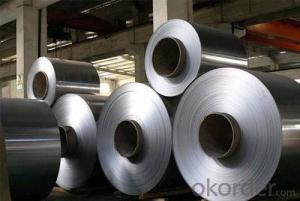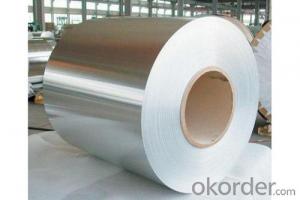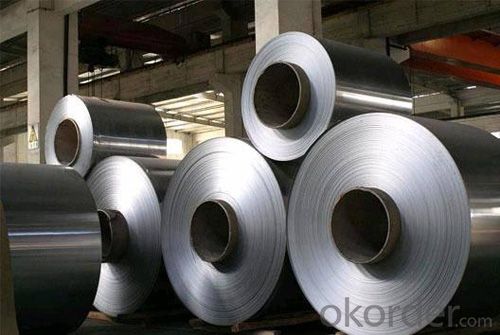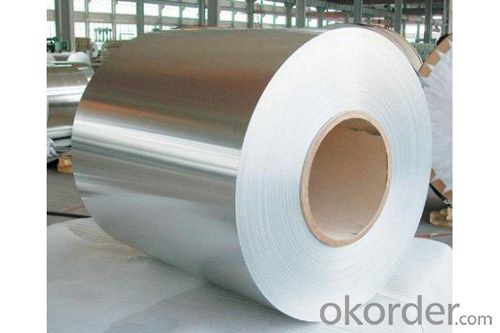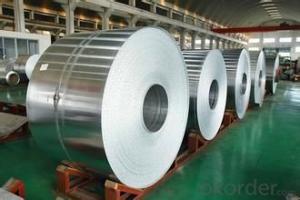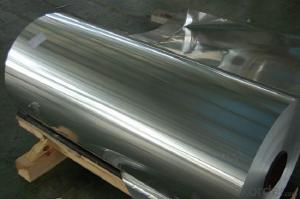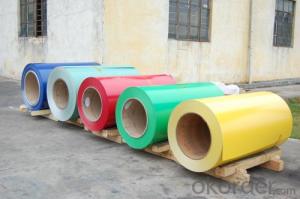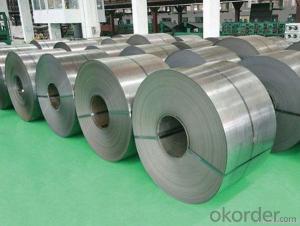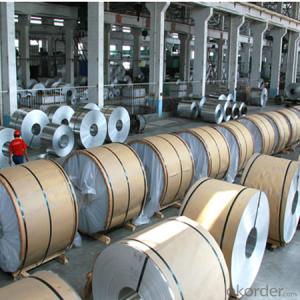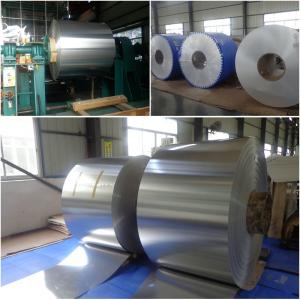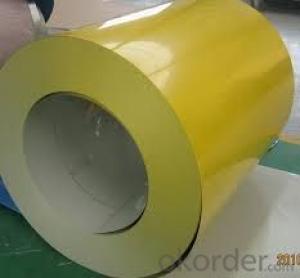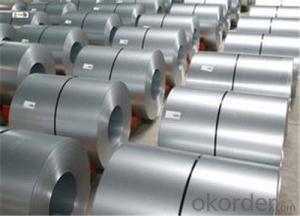Best Aluminum Coil Slitter Quotes for Ceiling Roofing Mill Finished
- Loading Port:
- China main port
- Payment Terms:
- TT OR LC
- Min Order Qty:
- 5 m.t
- Supply Capability:
- 10000 m.t/month
OKorder Service Pledge
OKorder Financial Service
You Might Also Like
Specification
1. Specification of Aluminium Coil for Ceiling Roofing Mill Finished
Thickness: 0.1mm-10mm
Regular Thickness:0.1mm/0.2mm/0.25mm/0.3mm/0.6mm/0.8mm/1.0mm/1.2mm/1.5mm/2.0mm/3.0mm...
Width: 20mm-2500mm
Inner Diameter: 505mm 508mm 605mm
Material:1050,1060,1070,1100,1200,3003,3004,3005
Temper: O,H12,H14,H16,H18,H22,H24,H26,H32,H34,H36,H38,H111,H112
Surface: mill finish
Packing: Export standard wooden pallets
Payment Terms: 100% irrevocable L/C at sight or 30% T/T in advance as deposit,70% balance against the B/L copy
MOQ: 5000kg
Delivery time: 15-25 days after receiving L/C or deposit
Remark: Specific requirement of alloy grade, temper or specification can be discussed at
your request
2. Application of Aluminium Coil for Ceiling Roofing Mill Finished
(1).Interior: wall cladding, ceilings, bathrooms, kitchens and balconies, shutters, doors...
(2).Exterior: wall cladding, facades, roofing, canopies, tunnels,column covers , renovations...
(3).Advertisement: display platforms, signboards, fascia, shop fronts...
3. Feature of Aluminium Coil for Ceiling Roofing Mill Finished
*Such coil is specially designed to replace aluminum ingot, due to the high export tax of aluminum ingot, the coil has better price than ingot.
*This type of coil can fit customer's remelting furnace just like ingot, no need to make any change to the production line that was previously used for ingot. The standard coil size and weight is very suitable for the feed gate of furnace.
*This type of coil causes less material wastage than ingot when remelted.
*Our coil is made directly from ore, no need to go though the ingot making process, quality is much better than other suppliers who use ingot scrap to make coil.
Be free from Oil Stain, Dent, Inclusion, Scratches, Stain, Oxide Dicoloration, Breaks, Corrosion, Roll Marks, Dirt Streaks and other defect which will interfere with use
4. Certificate:
SGS and ROHS(if client request, paid by client), MTC(plant provided), Certificate of Origin(FORM A, FORM E, CO), Bureau Veritas and SGS (if client request, paid by client), CIQS certificate
5. Image of Aluminium Coil for Ceiling Roofing Mill Finished
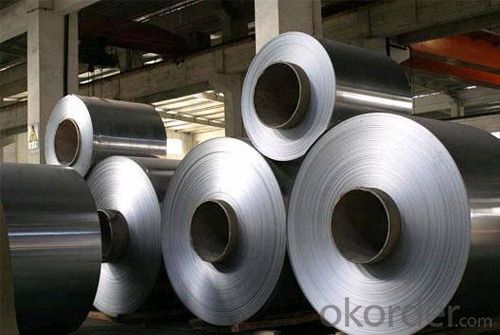
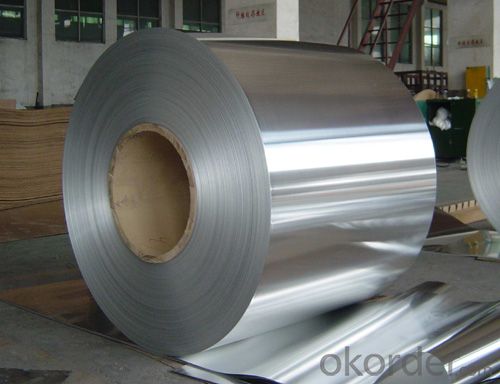
6. Package and shipping of Aluminium Coil for Ceiling Roofing Mill Finished
eye to sky
eye to wall
with wooden pallet (wooden case also available)
7. FAQ
1) What is the delivery time?
Dpends on actual order, around 20 to 35 days
2) What is the QC system:
We have QC staff of 20 persons and advanced equipment, each production is with MTC traced from Aluminum ingot lot.
3) What market do you mainly sell to?
Australia, America, Asia, Middle East, Western Europe, Africa etc
- Q: What are the different slitting options for aluminum coils?
- There are several different slitting options available for aluminum coils, depending on the specific requirements and end use of the material. Some of the commonly used slitting options for aluminum coils include: 1. Single Slit: This is the most basic and widely used slitting option, where the aluminum coil is cut into two narrower coils with a single cut along the center. 2. Double Slit: In this option, the aluminum coil is cut into two narrower coils with two parallel cuts along the center, resulting in smaller widths for each coil. 3. Multi-Slit: This option involves cutting the aluminum coil into multiple narrower coils with multiple parallel cuts along the center. It allows for the production of several smaller coils from a single wider coil. 4. Ribbon Slit: This slitting option is used when the aluminum coil needs to be slit into very thin strips, often used in applications such as electrical wiring or packaging. 5. Oscillate Slit: This option is suitable for applications that require varying widths of aluminum strips. The coil is slit in a back-and-forth motion, allowing for flexibility in producing different widths. 6. Custom Slitting: Depending on the specific needs of a project, custom slitting options can be implemented. This involves tailoring the slitting process to achieve unique widths, lengths, or shapes of aluminum strips. It is important to consider the desired application, required dimensions, and the capabilities of the slitting equipment when choosing the appropriate slitting option for aluminum coils.
- Q: How are aluminum coils used in HVAC systems?
- The excellent heat transfer properties and durability of aluminum coils make them widely used in HVAC systems. These coils play a vital role in cooling by efficiently extracting heat from the air. In HVAC systems, you will typically find aluminum coils in the condenser and evaporator units. The condenser coil releases heat to the surroundings by transferring it to the outdoor air, while the evaporator coil absorbs heat from indoor air, cooling it down. Aluminum is the preferred material for these coils because of its high thermal conductivity, allowing for efficient heat transfer. The coils consist of thin aluminum fins attached to aluminum tubes. This design maximizes the coil's surface area, enabling better heat exchange between the refrigerant flowing through the tubes and the air passing over the fins. During the cooling process, the coil's refrigerant absorbs heat from the indoor air, transforming it into a gas. The heat is then transferred to the aluminum fins, where it dissipates into the surrounding air. Consequently, the air passing through the evaporator coil becomes cooler, creating a comfortable indoor environment. Similarly, in the condenser unit, the refrigerant releases heat to the outdoor air through the aluminum coils. This allows the refrigerant to return to its liquid state, ready to be cycled back to the evaporator coil for the cooling process to continue. Aluminum coils are also favored in HVAC systems due to their corrosion resistance, ensuring their longevity and reliability. They are lightweight, making installation and maintenance easier. Moreover, aluminum coils are recyclable, contributing to a more sustainable and eco-friendly HVAC system. In summary, aluminum coils are crucial components of HVAC systems, providing efficient heat transfer, durability, and corrosion resistance. Their use greatly contributes to the cooling and comfort of indoor spaces.
- Q: What is the minimum thickness available for aluminum coils?
- The minimum thickness available for aluminum coils can vary depending on the specific requirements of the application. However, in general, aluminum coils can be manufactured with a minimum thickness of around 0.006 inches or 0.15 millimeters. It is important to note that certain industries or uses may have different minimum thickness requirements, so it is always advisable to consult with a manufacturer or supplier to determine the appropriate thickness for a specific application.
- Q: Explain how aluminum coils impact the manufacturing process.
- <p>Aluminum coils significantly affect the production process by offering versatility and efficiency. They are easily formed, cut, and shaped, which streamlines manufacturing. Their lightweight nature reduces the energy consumption in transportation and handling. Additionally, aluminum coils' corrosion resistance and durability reduce waste and the need for frequent replacements, enhancing sustainability. They also contribute to the production of various products, such as automotive parts, construction materials, and packaging, by providing a consistent and high-quality material.</p>
- Q: who invented aluminum and or aluminum foil?
- Well, God invented aluminum, as it is an ELEMENT. The other, I don't know.
- Q: Are aluminum coils easy to install?
- Yes, aluminum coils are generally easy to install. They are lightweight and flexible, making them convenient to handle and position during installation. Additionally, they can be easily cut and shaped to fit the desired space, making the installation process relatively straightforward for experienced professionals or DIY enthusiasts.
- Q: What are the necessary safety measures to take when handling aluminum oxide coated aluminum coils?
- <p>When working with aluminum oxide coating on aluminum coils, it's crucial to follow safety precautions. Always wear appropriate personal protective equipment (PPE), including gloves, safety glasses, and a dust mask to prevent inhalation of dust particles. Ensure proper ventilation to avoid dust accumulation. Handle the material carefully to prevent any skin contact with the coating. Keep the area clean and free from any flammable materials to avoid fire hazards. Be aware of the specific health risks associated with aluminum oxide exposure, and follow the manufacturer's guidelines for safe handling. Regularly inspect equipment for any signs of wear or damage that could lead to accidents.</p>
- Q: What is the maximum yield strength of aluminum coils?
- The maximum yield strength of aluminum coils can vary depending on the specific alloy and temper, but it typically ranges between 15,000 and 50,000 pounds per square inch (psi).
- Q: How do aluminum coils contribute to improved indoor air quality?
- Various ways are improved by aluminum coils in enhancing indoor air quality. Primarily, these coils are commonly used in air conditioning and HVAC systems, which are designed for circulating and filtering the air inside buildings. The cooling and dehumidifying of the air, reducing moisture content that can encourage the growth of mold and mildew, is assisted by the aluminum coils in these systems. By controlling humidity levels, allergens and pollutants that thrive in damp environments are prevented from developing, thus enhancing indoor air quality. In addition, aluminum coils function as highly efficient heat exchangers, facilitating effective heat transfer between the air and the cooling or heating system. This efficiency enables HVAC systems to maintain a consistent temperature throughout the building, resulting in reduced energy consumption. Through the use of less energy, these systems emit fewer harmful greenhouse gases, ultimately contributing to lower levels of outdoor air pollution and improving overall air quality. Furthermore, the durability and resistance to corrosion of aluminum coils are essential for maintaining a clean and healthy indoor environment. The corrosion-resistant properties of aluminum coils ensure that no metallic particles or rust contaminate the circulated air. Consequently, occupants are less likely to inhale harmful particles that can cause respiratory issues and other health problems. Moreover, aluminum coils are lightweight and often come with a protective coating, making them easier to clean and maintain. Regular cleaning of coils prevents the accumulation of dust, dirt, and other pollutants over time. By keeping the coils clean, airflow is optimized, ensuring that the circulated air is free from contaminants and allergens, thus promoting improved indoor air quality. In summary, aluminum coils contribute to improved indoor air quality by reducing humidity levels, preventing the growth of mold and mildew, enhancing energy efficiency, minimizing the emission of greenhouse gases, and maintaining a clean and contaminant-free air circulation system. These coils are an essential component of HVAC systems that play a vital role in creating a healthier and more comfortable indoor environment for occupants.
- Q: Are aluminum coils suitable for insulation purposes?
- Yes, aluminum coils are suitable for insulation purposes. Aluminum is a highly effective conductor of heat and electricity, making it an ideal choice for insulation. Aluminum coils can be used in various applications such as HVAC systems, refrigeration units, and electrical wiring. The coils are typically coated with a layer of insulation material such as polyurethane foam or fiberglass to enhance their insulating properties. The combination of aluminum and insulation helps to prevent the transfer of heat or cold, providing excellent thermal insulation. Additionally, aluminum is lightweight, durable, and resistant to corrosion, making it a reliable choice for long-term insulation needs.
Send your message to us
Best Aluminum Coil Slitter Quotes for Ceiling Roofing Mill Finished
- Loading Port:
- China main port
- Payment Terms:
- TT OR LC
- Min Order Qty:
- 5 m.t
- Supply Capability:
- 10000 m.t/month
OKorder Service Pledge
OKorder Financial Service
Similar products
Hot products
Hot Searches
Related keywords
